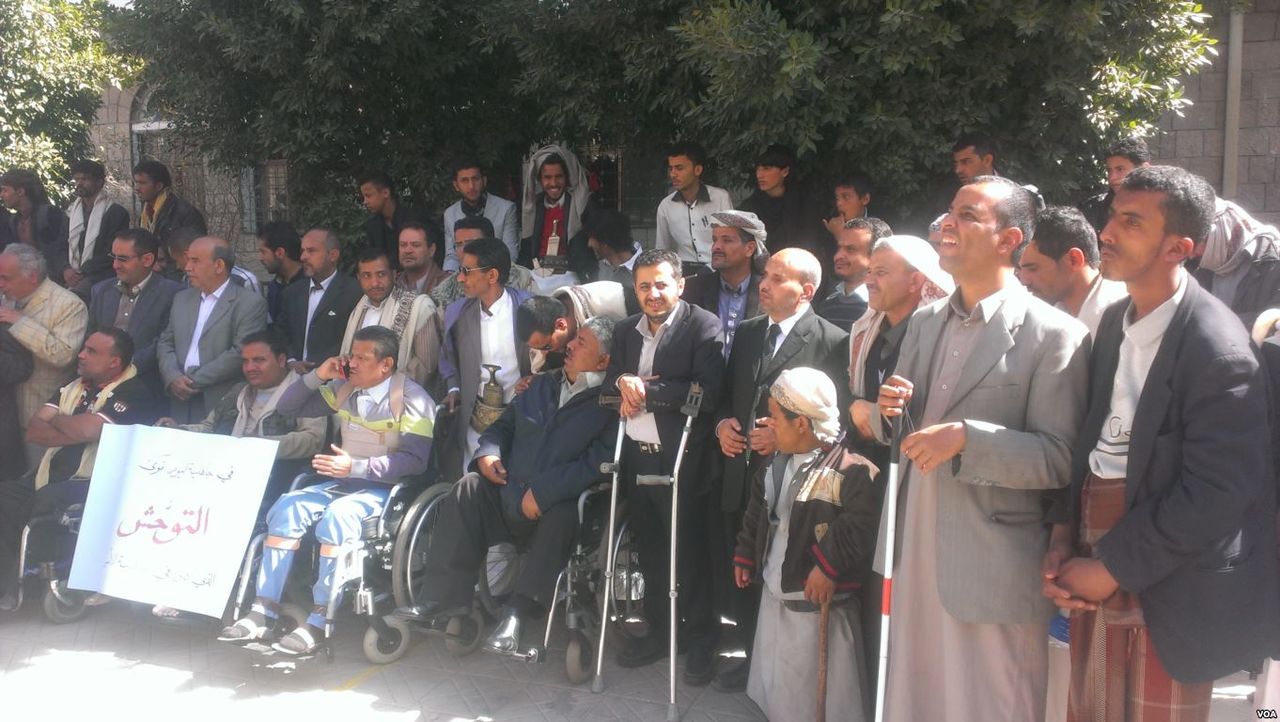This is the second of a three-part series of essays on Yemen highlighting the magnitude and impact of the civil war on Yemenis. Part 1, Part 3
“All those with influence over the Saudi-led coalition are complicit in Yemen’s suffering unless they do all they can to push them to lift the blockade.”
– Shane Stevenson, Oxfam’s Country Director, Yemen
Yemen and its people have been enduring an unprecedented, catastrophic humanitarian crisis that has claimed the lives of tens of thousands, displaced millions, and continues to starve hundreds to death each day.
Starting in March 2015, Saudi Arabia led a coalition of several Arab countries in bombing Yemen, its neighbor to the south. The coalition’s indiscriminate bombing has targeted countless homes, schools, markets, and even hospitals. Yemenis have become accustomed to double-tap and triple-tap strikes that target rescuers after an attack. One notable case was a double-tap strike that killed at least 140 mourners at a large funeral home in Sana’a, Yemen’s capital. The number of deaths resulting from US/Saudi airstrikes and fighting between Saudi-allied and Saleh/Houthi-allied forces has been conservatively estimated at 10,000 deaths and 40,000 injuries. The hidden costs of war, however, are much greater.
On November 6, following a missile attack by Yemen on Riyadh, the Saudi-led coalition resorted to tightening its blockade on Yemen, preventing humanitarian organizations from delivering aid into the country’s most important airports and seaports. Saudi officials claimed the blockade was necessary to prevent Iran from smuggling weapons to Houthis, a claim that was discredited by a UN report. The humanitarian crisis resulting from the war is described as “the world’s worst,” and the blockade is projected to cause the “the largest famine the world has seen for many decades, with millions of victims,” according to UN aid chief Mark Lowcock.
Prior to the war, Yemen was already the Middle East’s poorest country – it struggled with a severe water crisis and relied almost entirely on food imports. The Saudi-led coalition’s sustained attack on Yemen has resulted in widespread starvation due to dwindling food supplies. Some people live on one piece of bread a day. Today, two-thirds of Yemenis, or 20 million people, are in need of humanitarian assistance, and one quarter – seven million people – are one step from famine.
And of course the most innocent citizens, young children, are paying with their lives.
In 2016, at least 63,000 children either starved to death or died of preventable diseases such as cholera. Another 50,000 are estimated to have died this year, bringing the total to over 113,000 children. Officials at the World Food Programme predict that 150,000 more children will starve to death in the coming months due to the near-total blockade on Yemen – that is equivalent to every child born in New England in 2015. Those who survive famine and malnutrition can suffer from lifelong consequences such as stunted growth and cognitive deficiencies. One such child is Saleem, a seven-year-old Yemeni boy whose emaciated body shocked the world when his photo surfaced in late 2016. Though he survived starvation, Saleem now suffers from brain damage and stunted growth.
Another child, five-year-old Batul, was recovering from malnutrition when she died of another epidemic gripping Yemen: cholera. With 950,000 cases and counting, Yemen is suffering the world’s worst cholera outbreak on record. The treatment for cholera is simple – oral rehydration therapy – but ironically, in a nation that is home to a dam 800 years older than the Colosseum, clean water has become a luxury.
Oxfam’s Country Director in Yemen, Shane Stevenson, said, “The people of Yemen are already being starved to submission – unless the blockade is lifted quickly they will have their clean water taken away too.” For millions of Yemenis, it is already too late. Seven cities, including the capital Sana’a and major cities such as Taiz and Hodiedah, have already run out of clean water due to fuel shortages that prevent water pumps from operating. The result is that 16 million Yemenis are currently without consistent access to clean water. Yemen’s few remaining hospitals will be forced to shut down when fuel runs out in a matter of days. Without fuel, water, and food, what can remain?
On November 25th, the Saudi-led coalition finally allowed four planes carrying aid and vaccines to land in Sana’a, but there are no guarantees that future planes will be permitted into the country. Even if aid shipments are henceforth allowed entry, it would only address 20-25% of Yemen’s import needs, while the remaining 75-80% is imported through commercial trade, which remains blocked. Unless the Saudi-led blockade is lifted, allowing for aid and trade to resume unfettered, innocent Yemeni civilians will continue to suffer.
It is time for the international community to present a united challenge to Saudi Arabia’s disastrous campaign in Yemen. Americans have the most important role to play. We must speak out against the war and demand an end to our government’s involvement. Let us work together to end a famine we helped create.
